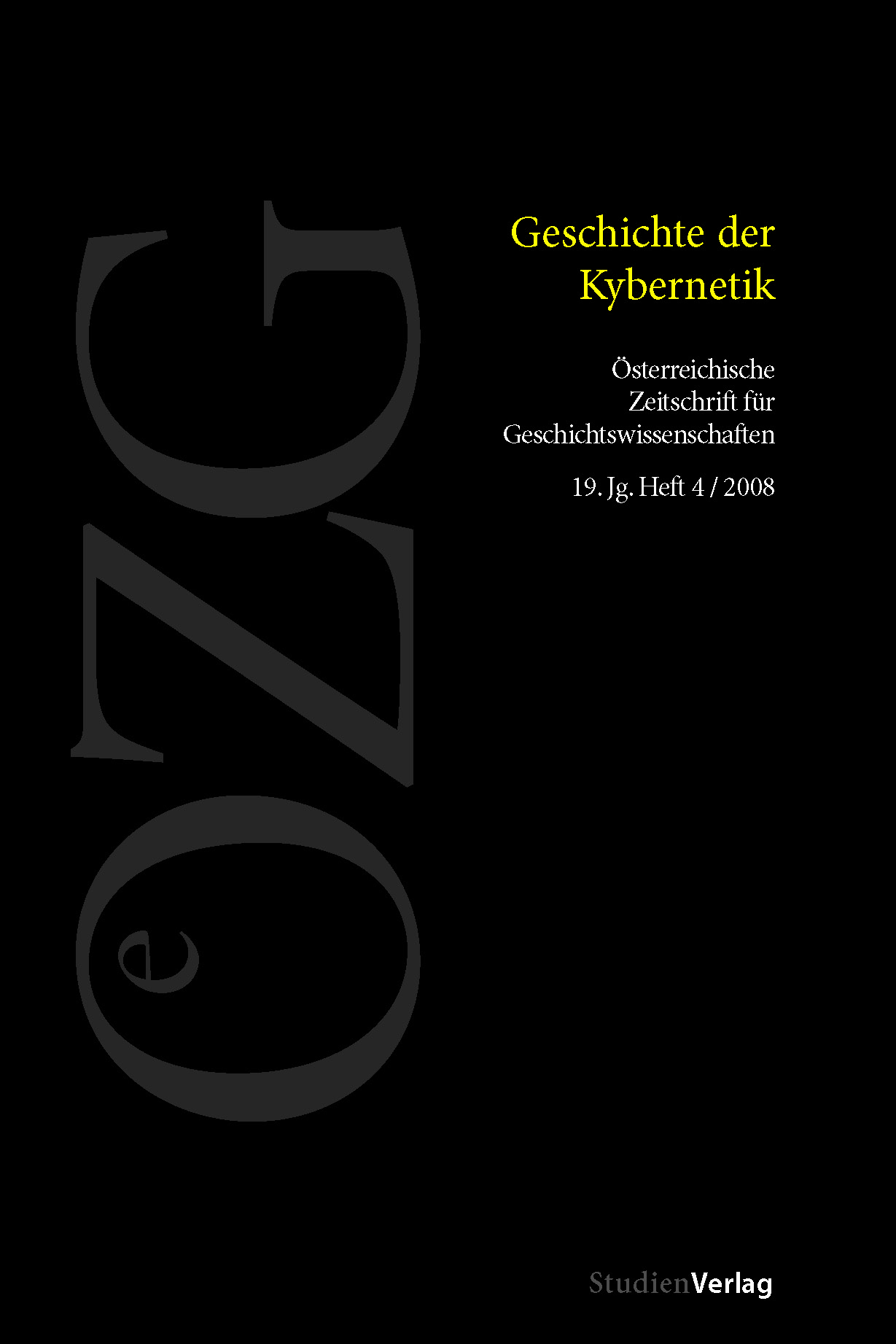The control of control – Gordon Pasks kybernetische Ästhetik
DOI:
https://doi.org/10.25365/oezg-2008-19-4-5Abstract
The article focuses on music and art projects of the British cybernetician Gordon Pask from the 1950ies to the end of the 1970ies. These projects are seen as embedded in Pask’s general scientific work. Project Musicoulour is described as a learning machine which produces light effects according to the variety of the performance of a piano player. Thus theatres and dancing halls became cybernetic laboratories. Another example of Pask’s activities in the field of art was Fun Palace, which was described as a system for encouraging the creative behaviour that is necessary in an automated society. Participation of the audience was a key element of project Fun Palace and a projected central part of it, the Cybernetic Theatre. Finally the Colloquy of Mobiles, Gordon Pask’s most famous installation which has been prepared for the exhibition Cybernetic Serendipity, is discussed.


